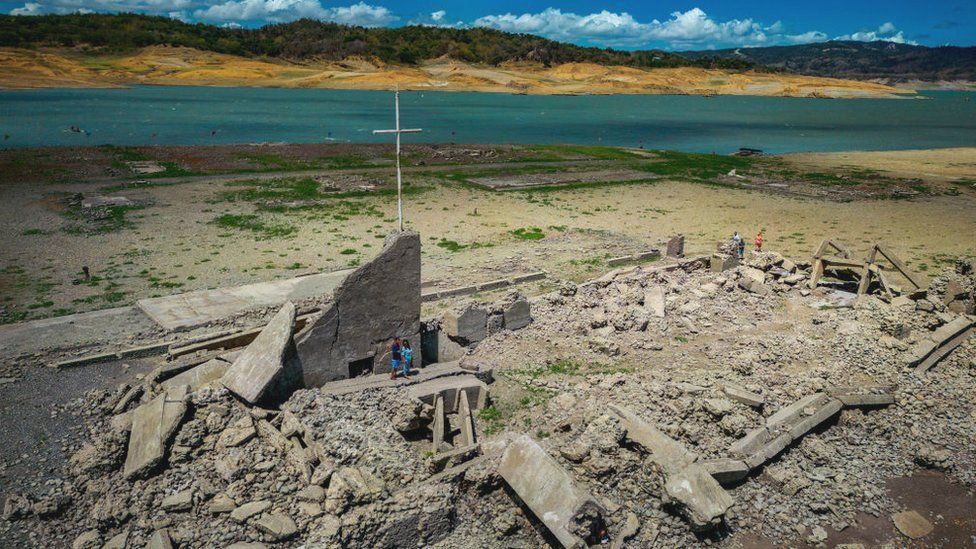 Image source, Getty Images
Image source, Getty Images
The town emerges from the water on extremely rare occasions, when the weather is dry and hot
The ruins of an almost 300-year-old town have resurfaced as searing temperatures in the Philippines partially dried up a major dam.
Pantabangan town was submerged in the 1970s to build a reservoir.
But it emerges from the water on extremely rare occasions, when the weather is dry and hot.
It comes as almost half the country is experiencing a drought, with temperatures reaching a high of 50C (122F) in some places.
This is the longest the town has ever been above water since the dam was constructed, Marlon Paladin, an engineer with the state agency that operates the country's dams, told news agency AFP.
The extreme heat has disrupted the daily lives of millions as schools are shut for days and office workers are advised to work from home.
And it could still get marginally hotter in the coming days, Benison Estareja, a meteorologist at the state-run weather bureau Pagasa, told BBC News.
"The general impact of climate change on the Philippines is warmer temperatures. The heat that we are experiencing, it could steadily increase in the coming days," Mr Estareja said.
Image source, Getty Images
Image caption,The Pantabangan dam supplies water to surrounding rice-growing regions
The Philippines is in the middle of its warm and dry season, which is exacerbated by El Nino or the unusual warming of surface waters in the Pacific Ocean. The archipelago nation's entire east coast faces the Pacific.
The South East Asian nation is one of the most at risk countries in the world from the effects of climate change. Its wet season can bring about monster storms, including Super Typhoon Haiyan in 2013, one of the most powerful in history.
"We are seeing that our dam levels will drop, including in Pantabangan and other areas," Mr Estareja said.
The water level there has fallen by nearly 50m from its normal high level of 221m, based on official data.
The ruins began to resurface in March as the area had been receiving almost no rain, Mr Paladin told AFP. The re-emergence of the ruins have drawn tourists to the town, some 202km (125 miles) north of the capital, Manila.
Image source, Getty Images
Image caption,The remnants of the old sunken town of Pantabangan have drawn crowds of tourists
Aside from the Philippines, Bangladesh has also enforced class suspensions that have affected 33 million students.
In Thailand, 30 people have died of heatstroke between January and April 17 this year, compared with 37 in the whole of 2023, the health ministry said. Across the border in Myanmar, temperatures have soared above 45C.

 10 months ago
53
10 months ago
53








